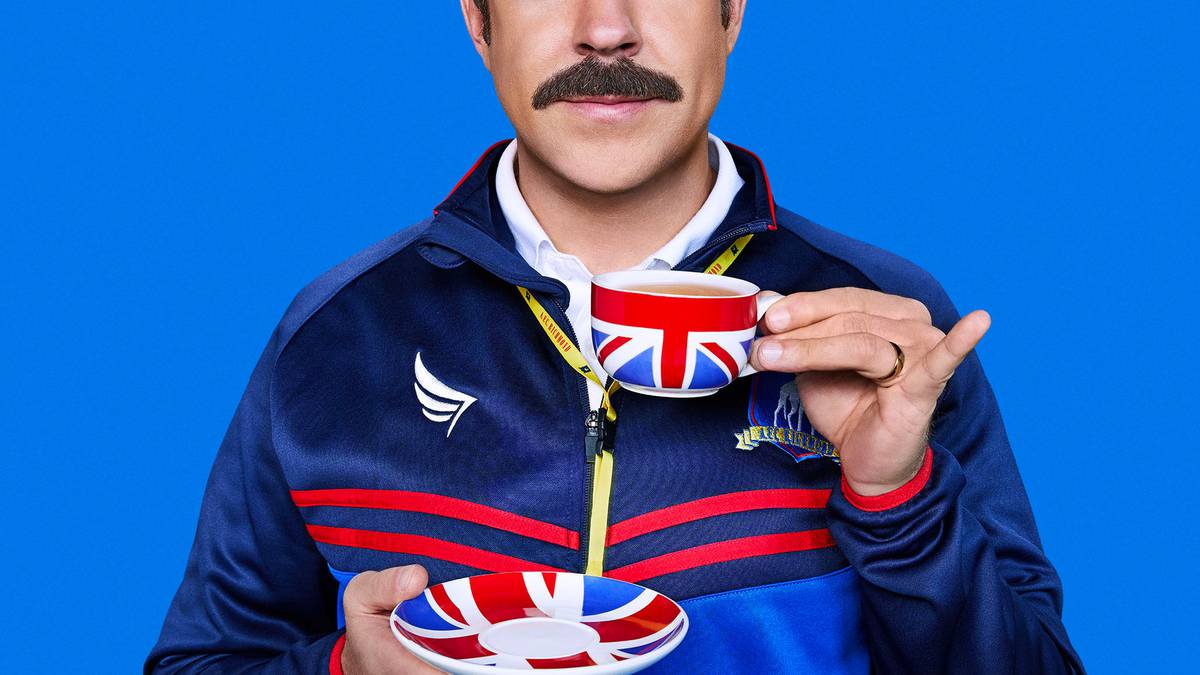Jason Sudeikis as Ted Lasso, a small-time college coach from Kansas coaching a professional football team in England, despite no experience – a show Columnist Vaughan Gunson is enjoying. Photo / File
OPINION:
The TV show Ted Lasso is like a cross between Coronation Street and the 1980s American sitcom Cheers, with football (don’t say soccer) thrown in.
I’ve been watching episodes on AppleTV+ with regular frequency,
though I wouldn’t say I was binging.
Mainly because the incessant niceness of Ted Lasso, played by Jason Sudeikis, would make me queasy if I overindulged. There’s only so much kindness I can take on TV before I’m longing for Game of Thrones-level villainy and deception.
Ted Lasso centres on an ex-college American football coach trying his hand at managing a fictional English football club, AFC Richmond, even though he knows little about the sport.
What he knows more about is getting players and everyone else to “believe” in themselves.
And to be nice to each other. Because that’s the road to building team culture and maybe even success.
The show has been credited for bringing kindness back to television.
Which is all well and good, but it’s the humour and characters that make Ted Lasso watchable.
Characters that exist around English football are lampooned and mined for hidden depths. Like Keeley, the famous-for-being-famous perennial girlfriend of football players.
And my favourite character, Roy Kent, the over-the-hill hirsute star player who grunts at everyone and swears constantly.
There’s lots of humour based on differences between American and British culture. Tea jokes abound.
And there are references aplenty to pop culture that a viewer my age will get. It’s the kind of warm television viewing you need during a wet soggy winter.
To keep a balance, it does go to some darker places, without which there would be no drama.
We find out early on, for instance, that Lasso’s forever smiling, constantly jabbering optimism is one reason his wife gives for wanting to leave him.
Of course, being a series centred on high-level sport, niceness comes into conflict with the desire of fans and players to win games. However kind you are, it won’t mean squat if the team is losing.
Comparisons with Ian Foster’s (Fozzie to his friends) reign as All Blacks coach are obvious.
You can be a nice guy, who the players love, but if you’re losing, you’re the most hated man in New Zealand rugby.
In the exploration of kindness, Ted Lasso makes another more subtle point, which is all about the maths.
If you’re kind to everyone, are you diluting the amount of niceness you’ve got for a more modest number of people?
Is Lasso’s profligate niceness covering emotional issues with real intimacy?
There’s also the impact of Lasso’s behaviour on other characters — what we might call the diminishing returns of niceness when the circle is wide.
Here the story arc of Nate, who rises from kit manager to assistant coach, is revealing.
The falling out with Lasso in Season Two is due partly to Nate feeling like Lasso isn’t being as nice to him as he was in the beginning.
Lasso’s charm made Nate feel special, but then the friendship doesn’t develop into something deeper — Lasso is just nice to everyone. And being head coach, he’s got a lot to deal with.
For Nate, who misreads the dynamic, there’s hurt and jealousy.
The regard that the less charismatic have for skilled people pleasers can create unequal relationships.
Now I don’t know the ins and outs of everything happening inside the Labour Party caucus, but Dr Gaurav Sharma is acting to me a little like the character Nate. With Jacinda Ardern in the role of the kindness-preaching Lasso.
One wonders, did Dr Sharma misjudge the Prime Minister’s natural charisma and empathy as something more than a party leader doing her job?
Those photos with the Prime Minister were always going to mean more to backbencher Sharma than to Ardern.
Sharma appears to be acting like a man hurt, whatever issues he had with his own staff and the Labour Party whips.
This leads me to another comparison that can be made with the TV series. Sharma wants people to be nice to him, even though he may not have shown exemplary kindness to others.
Hardly a rare fault, however. All of us are prone to over-evaluating our kindness and being overly sensitive to rudeness, disrespect, or plain indifference shown towards us.
One of the ideas raised by Ted Lasso is an old one, common to cultures, religions and philosophies throughout history. That it’s more important to be nice rather than worry about other people being nice to you, which is out of your control. Being nice is its own reward.
On my desk is a turquoise cloth-bound book picked up at op-shop recently. The plain yellow font on the cover says: “On Being Nice”.
It’s a publication of The School of Life, which has physical campuses around the world and a website.
I should read it. Some would say I could do with training in being nice. Depends on who you ask, though.
There are interesting chapter headings: “Why We Don’t Really Want to Be Nice”, “Losers and Tragic Heroes”, “The Problem of Over-Friendliness”, “Why Kind People Always Lie”, and “The Charm of Vulnerability.”
Sounds like all the stuff Ted Lasso is dealing with.
It’s not always easy trying to be nice. Even Kermit the Frog had his moments of meltdown.




